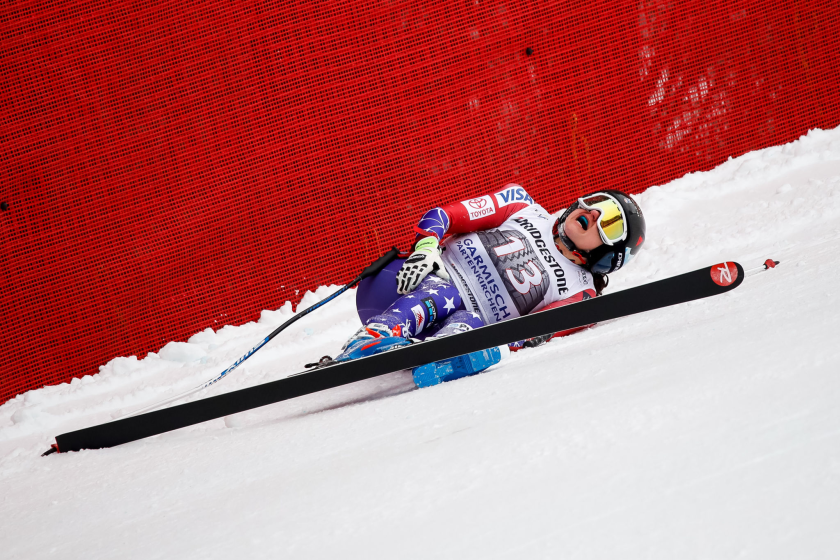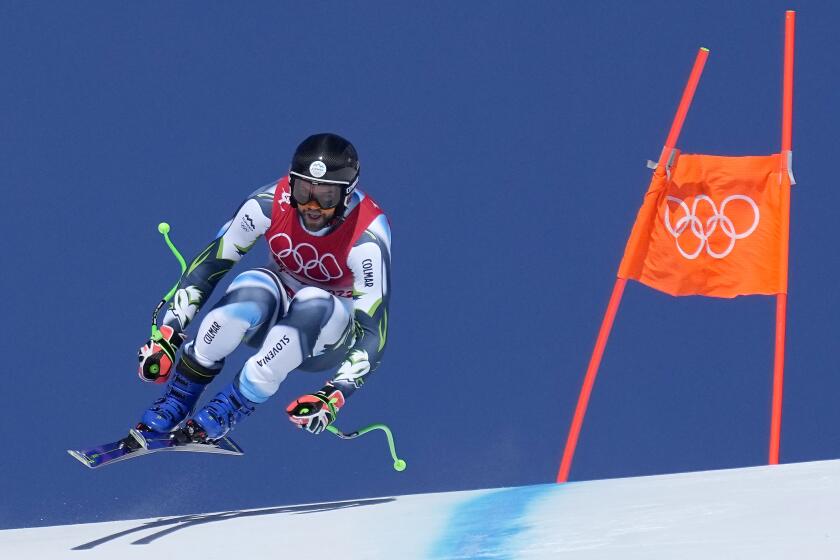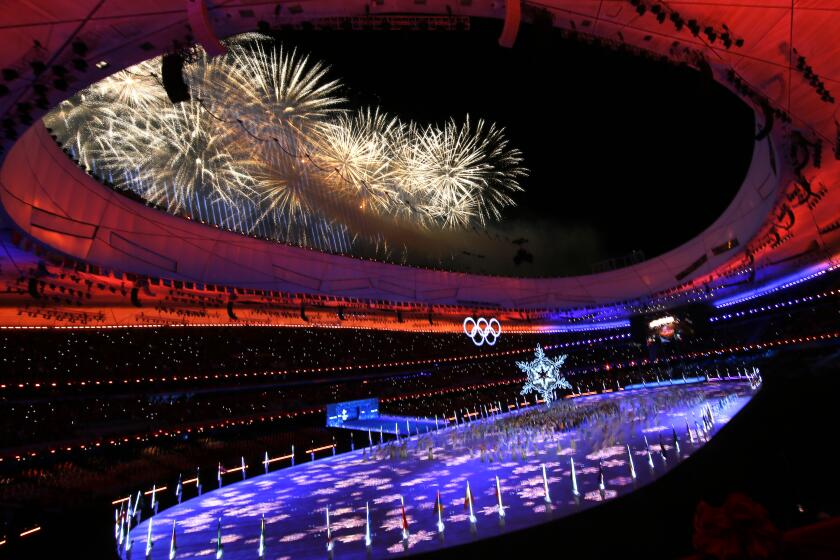U.S. skier Ryan Cochran-Siegle goes from broken neck to silver medal in a year
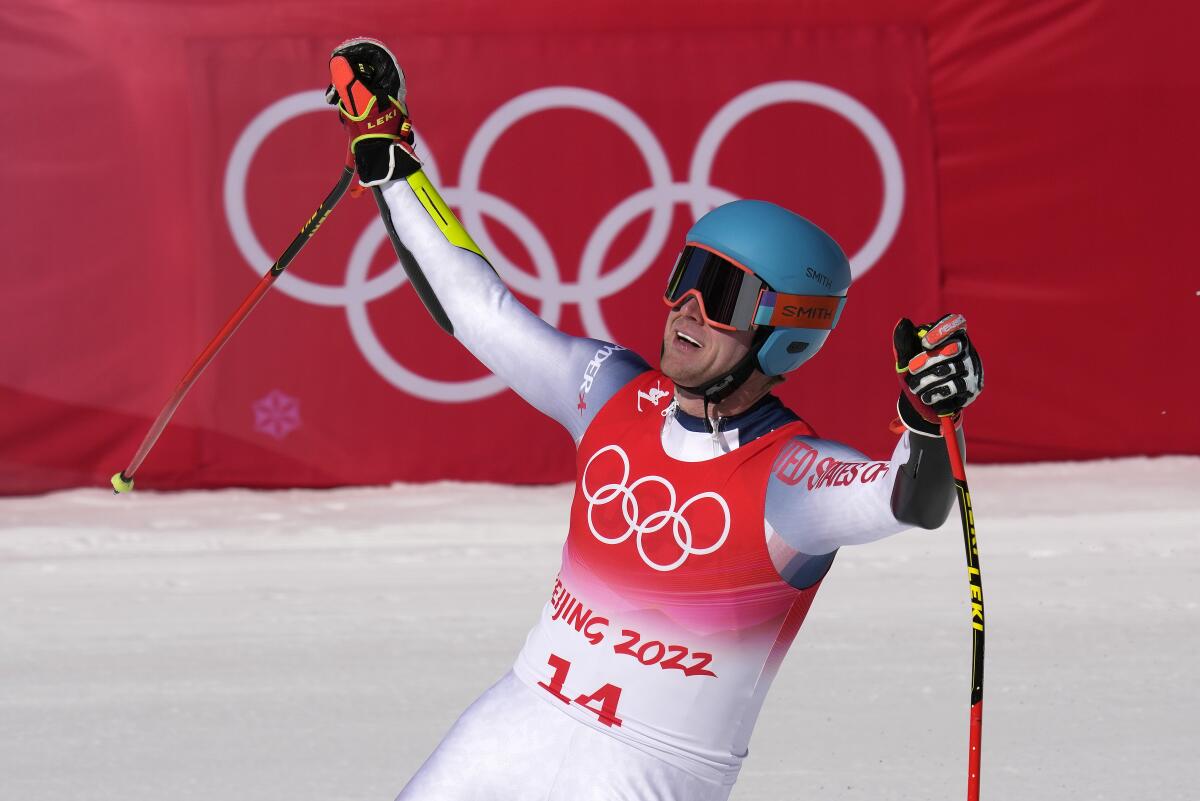
- Share via
BEIJING — The two-inch scar winds along the base of Ryan Cochran-Siegle’s neck.
It’s the remnant of a terrifying crash 13 months ago during the downhill in Kitzbuhel, Austria, when he lost his balance and plowed into the safety netting at full speed. The impact broke his neck, though he’s quick to insist it wasn’t as bad as it sounds.
Cochran-Siegle underwent surgery to fuse the C6 and fractured C7 vertebrae, ending his breakthrough season on the World Cup circuit and underlining the perilous nature of hurling yourself down mountains.
“It’s the closest that I’ve been to a career-ending injury,” he said. “You’re just micro-millimeters from a full sever of your spinal cord and then it’s game over. I thought about how close I was to having permanent damage, but being able to walk away from that and recognizing that I’m fortunate right now and taking advantage of the opportunities I have.”
That’s what Cochran-Siegle did under a cloudless sky Tuesday at the Yanqing National Alpine Centre, almost a year to the day since the surgery. On the strength of a near-flawless run through the “Rock” course that drew gasps of surprise when his time flashed on the giant video board at the finish, the 29-year-old won the silver medal in the super-G at the Winter Olympics.
Olympic skiers must endure falls and crashes, often leaving them with gruesome and painful injuries. But in their minds, the reward is worth the risk.
He finished in 1 minute 19.98 seconds — 0.04 seconds behind three-time gold medalist Matthias Mayer of Austria — and raised his arms in triumph as he skidded to a stop in front of the grandstand in a shower of man-made snow.
“I’m happy, relieved, I think a little bit of proud,” Cochran-Siegle said in typically understated fashion, “but just really appreciating that I’m here and able to accomplish my childhood dream.”
That dream wasn’t average. His grandparents built a popular ski area in Richmond, Vt., in the early 1960s that’s still operating. The family became known as the Skiing Cochrans. His mother, Barbara Cochran, won a gold medal in the slalom at the Sapporo Olympics in 1972. Her three siblings skied in the Olympics, too. Several of their children became top-flight racers as well, but none of the latest generation have been better than Cochran-Siegle.
Though he competed at the Pyeongchang Olympics in 2018 — his best finish was 11th in the giant slalom — the pieces of his career finally felt like they were fitting together in late 2020.
He was fast. He was in control. He was reaching podiums. He was second in the downhill in Val Gardena, Italy. First in the super-G in Bormio, Italy. He crashed three weeks later.
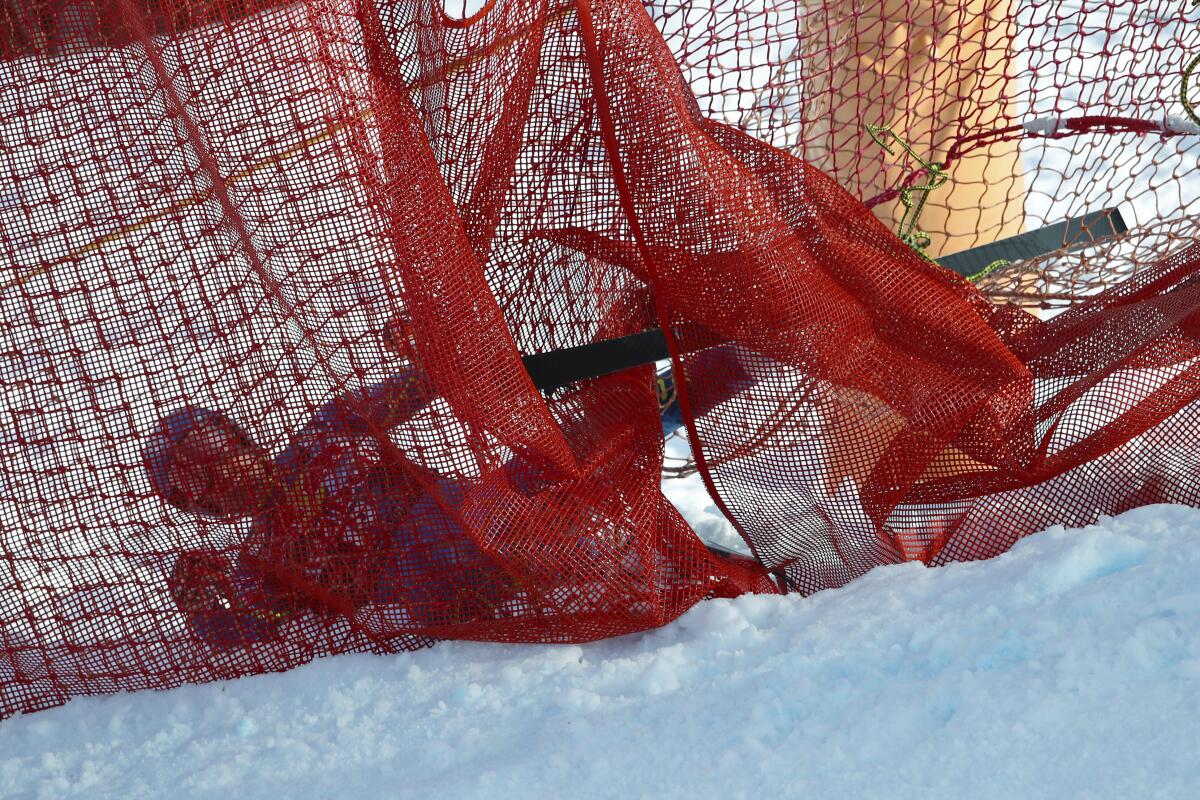
The surgery kept him off snow for two and a half months. Teammates marveled at how the broken neck — no matter how minor the injury might have been — didn’t seem to faze him. But that’s keeping with his restrained, studious approach.
“It’s amazing how he could just set that aside,” said Bryce Bennett, the speed specialist rooming with Cochran-Siegle at the Beijing Olympics.
From the outside, however, earning a medal in the super-G on Tuesday appeared to be a longshot for the U.S.
The speed team struggled a day earlier in the downhill on an unfamiliar course buffeted by gusts of wind — Cochran-Siegle placed 14th, Bennett came in 19th and Travis Ganong was 20th. The U.S. hasn’t medaled in the event since Bode Miller’s bronze at the Vancouver Games in 2010.
Downhill skiing, the defining beat-the-clock event at the Winter Olympic Games, is all about a kind of ragged-edge speed.
“All of us were pushing really, really hard and we had mistakes and we didn’t have a good result,” Ganong said. “But the mentality and the mindset of that style of skiing is what it takes for medals. … We’re all really, really good skiers and on any given day, it can all come together.”
During a team meeting Monday night, Ganong encouraged his teammates to keep attacking.
Cochran-Siegle — ranked 11th in the world in the super-G — charged out of the gate in a run that was as smooth as it was aggressive. After the second jump, he felt like he was too conservative and pushed harder from that point.
“Things are coming at me fast, but I was in control,” he said. “I was pushing and part of me recognized I was skiing well and trusting that and fighting all the way to the finish.”
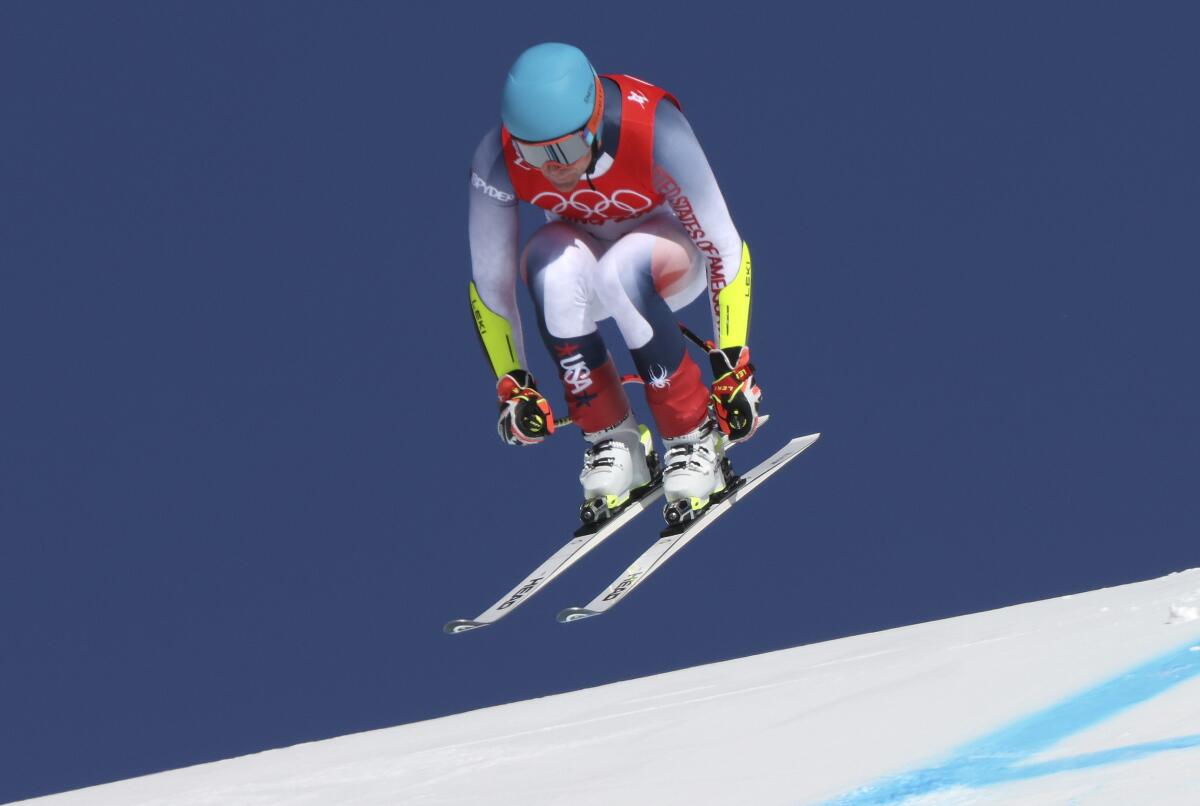
Bennett, waiting for his turn, couldn’t turn away from watching his roommate shoot down the slope: “As soon as he kicked out of the gate, I knew it was going to be good.”
At the finish, Ganong, the first American to compete Tuesday, realized something special was happening.
“There’s one turn that he knifed better than I’ve ever seen anyone do before,” said Ganong, who finished 12th. “He gave his body a little extra room, kept his shoulders down, kept his feet behind him, just snapped off the turn and accelerated to the bottom.”
The time, just a breath away from Mayer’s, flashed on the giant video board. He had to wait while the rest of the field completed the course. But his time was so far ahead — 0.42 seconds better than third-place Aleksander Aamodt Kilde — that the result felt inevitable.
Recapping the news, results and highlights from The Times’ team of reporters who covered the 2022 Beijing Olympic Games.
“You dream of these moments,” Cochran-Siegle said. “You see it in your mind. At times you have to put it away, you have to just focus on the skiing. That’s what I was doing today.”
He added: “I think this was the best second place I’ll ever get in my life.”
A journalist mentioned the broken neck. Cochran-Siegle remembered the date. Three hundred sixty-four days had passed since the surgery. Now a red ribbon hung around his neck supporting a gleaming silver medal.
More to Read
Go beyond the scoreboard
Get the latest on L.A.'s teams in the daily Sports Report newsletter.
You may occasionally receive promotional content from the Los Angeles Times.
